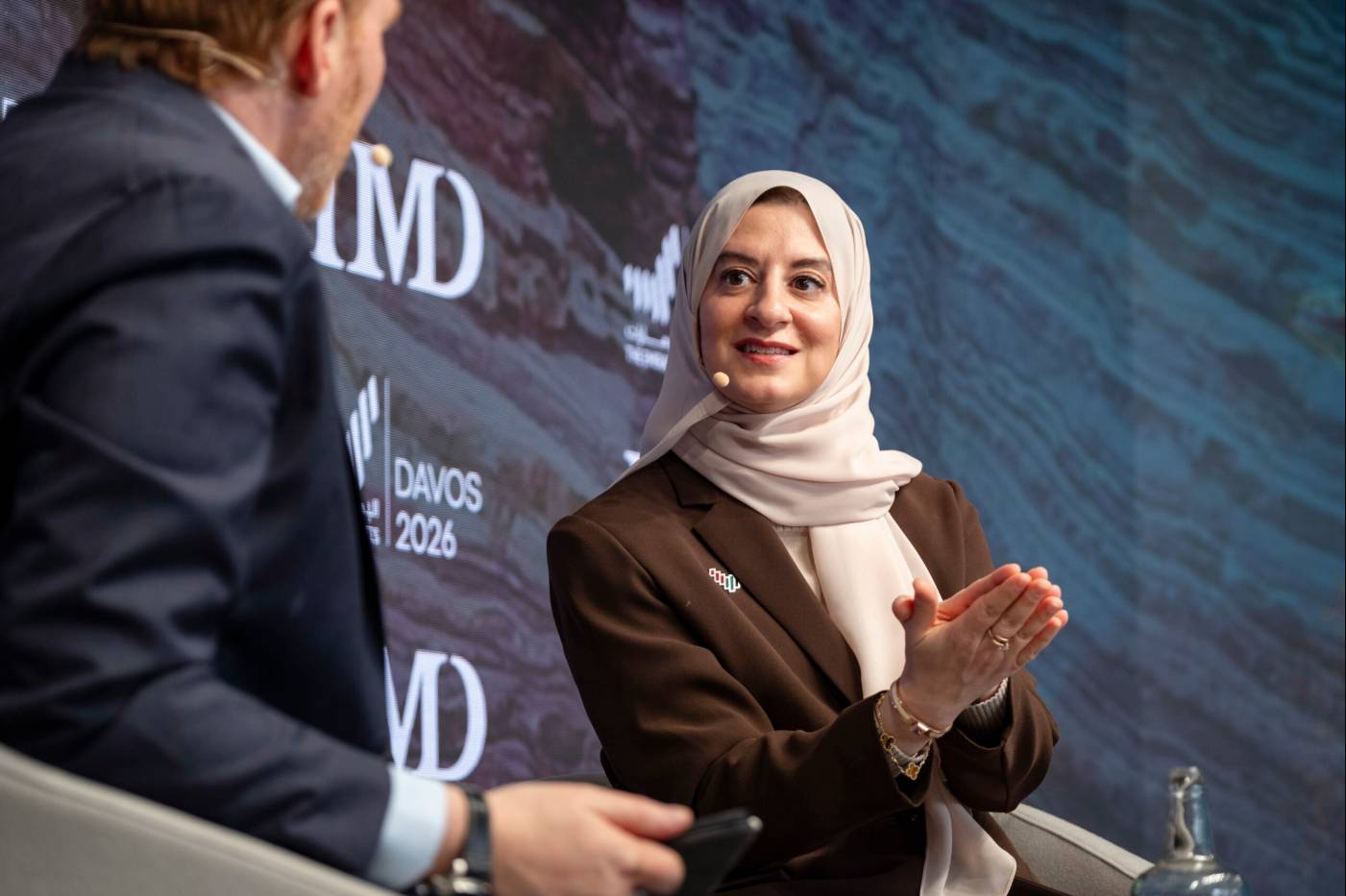
Optimism as strategy
Countries building ecosystems where government vision, business innovation, and investor confidence reinforce each other to gain competitive advantage through strategic optimism. ...
October 16, 2025 • by Kiran Bedi in Leadership
Drawing on her trailblazing career in public service, Kiran Bedi, the first woman to join the officer ranks of the Indian Police Service, shows how fearless leadership is built not on authority...
Every leader faces a moment when doing what’s right means standing alone. When that moment comes, hesitation creates more risk.
As the first woman to join the officer ranks of the Indian Police Service, I learned early on that leadership often means challenging expectations, not just others’, but your own. Over four decades in public life – from policing and prison reform to serving as the Lieutenant Governor of Puducherry – I have learned that integrity is the foundation of true authority.
In 1982, while serving as Deputy Commissioner of Police (Traffic) in Delhi during the Asian Games, I directed that all cars parked illegally near the stadium be ticketed, including one belonging to the Prime Minister. I didn’t know whose car it was at the time; it was wrongly parked, and the law applied to everyone.
The decision caused a national uproar, but I refused to back down. If I had hesitated that day, I would have lost the authority of my uniform and the trust of my team. It wasn’t easy being the first woman in a service built by and for men. Every decision I made was watched, tested, and often resisted. But fairness has no gender. What earned respect was consistency, not conformity. That incident became the cornerstone of my leadership philosophy: courage is not about aggression; it is about conviction.
Fearless leadership is not the absence of fear. It is the mastery of it. Integrity is not negotiable. The moment you compromise, you lose everything: your authority, your credibility, your command.
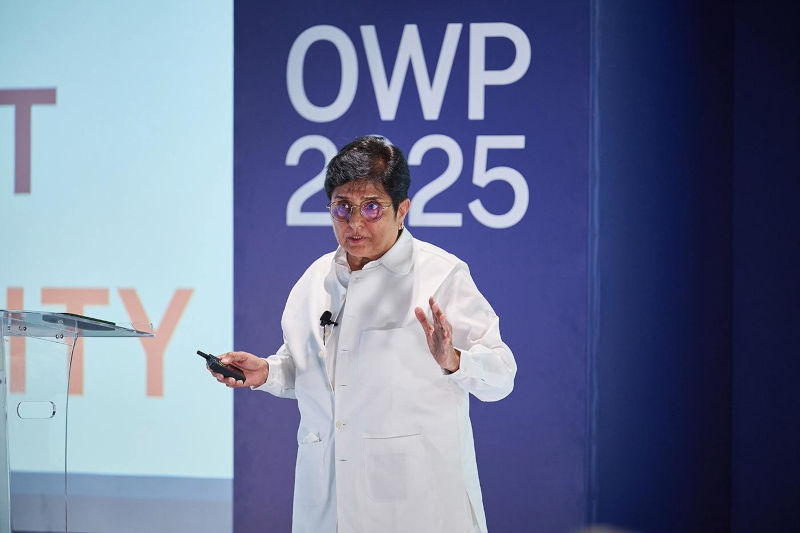
Before you can lead others, you must know what drives you. Purpose is your inner compass: it tells you what to do when rules are unclear and when resistance is high. My own sense of purpose was shaped by sport. As a national-level tennis player in my teens, I learned discipline, fairness, and resilience on the court. Tennis taught me consistency: losing is only failure if you stop learning. Those lessons became the foundation of my leadership: fairness in every decision, discipline in every action, and calm in every storm.
Discipline has been the foundation of my entire life. I never waste a minute. I plan my day. I stay fit in body and mind. When you command yourself, you earn the right to command others.
When you lead with purpose, you stop chasing popularity and start building trust. You stop asking “What will people think of me?” and start asking “What is the right thing to do?”
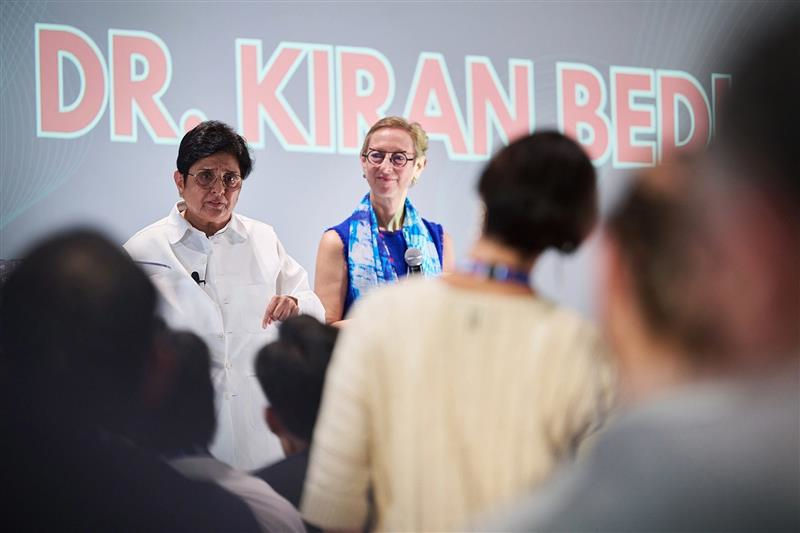
The courage to act with conviction must be matched by the humility to listen. Over the years, that belief guided me from the streets of Delhi to the walls of Tihar Prison, where the challenge was no longer enforcing the law, but restoring humanity.
When I took charge of Tihar Prison, one of Asia’s largest and most violent jails, I encountered a system built on fear. It was a city within a city: overcrowded, angry, and hopeless.
My first instinct was not to punish but to listen. You cannot police people into change; you must persuade them. I introduced meditation, education, vocational training, self-governance, and cleanliness. People started calling it the Tihar Ashram (spiritual retreat). Change came slowly, but it came. Violence dropped, literacy improved, and inmates began to see themselves as participants in reform rather than victims of punishment.
I called my approach the 3C model: Correction, Compassion, and Clarity. Correction without compassion breeds resistance. Compassion without clarity creates confusion. True transformation requires all three. The same principles that worked in Tihar apply everywhere: correction gives direction, compassion gives connection, and clarity gives conviction.
People don’t follow titles. They follow trust.
Real reform is about earning trust, not imposing control. What I learned in Tihar stayed with me for the rest of my career: when people are treated with dignity, they begin to believe in their own potential. That belief is what makes transformation sustainable.
Across every role I have held, from policing and prison reform to public administration, one principle has held true: trust is the currency of leadership. People don’t follow titles. They follow trust.
My leadership philosophy today rests on what I call TEA: Trust, Empowerment, and Accountability. Trust begins with transparency. Empowerment gives people ownership. Accountability ensures progress. Leadership is not about sitting at the top – it’s about being in the middle: listening, connecting, and holding the system together. When you lead from the middle, you stay close to reality and close to your people. That is how you build trust that lasts.
When you delegate, you give dignity. You make others part of your success, and that’s how you create ownership and trust. Consistency earns credibility; even your critics learn to respect it.
When you stand for something, you will be tested. But every test refines you.
Even the strongest systems are tested when pressure mounts. Trust is built over years but can be broken in a moment of fear or doubt. As leaders, our real test comes when those values are challenged, when doing the right thing becomes costly.
Standing by your convictions always brings resistance. When you stand for something, you will be tested. But every test refines you.
Over decades of public service, I have faced political opposition, criticism, and personal attacks, but never compromised. Fear is energy. Use it. Channel it. Master it. Turning fear into fuel gives you alertness, courage, and focus. It keeps you responsible, and consistency builds credibility. Lose your credibility, and you lose your command.
Courage is rarely loud. It is quiet persistence: the discipline to show up every day and do what’s right, even when no one notices. Fearless leadership is about consistency, not charisma. It is about being reliable in your values.
Expand your portfolio of giving – that is how you measure your life.
True leadership is an inner journey before it becomes an outer one. The courage to face – yourself, your fears, your ego, your limits – is what prepares you to serve others with clarity and humility. Once you master yourself, control no longer matters; contribution does. Leadership, to me, is about service: the question I ask myself every day is simple: what more can I give?
Today, as the Founder of the India Vision Foundation, I continue that mission by supporting education, empowerment, and rehabilitation programs for women and children affected by imprisonment. What began inside Tihar has grown into a movement for human dignity and systemic reform.
Whether reforming prisons, mentoring officers, or supporting civic initiatives, I have learned that service is the true measure of leadership. Expand your portfolio of giving – that is how you measure your life.
Fearless leadership, at its heart, is service anchored in purpose. It is moral clarity in action. You cannot always choose your challenges, but you can always choose your response.
When you choose courage over fear, conviction over convenience, and service over self, you don’t just lead, you transform.
This article is inspired by a keynote session at IMD’s signature Orchestrating Winning Performance program, Singapore (2025), which brings together executives from diverse sectors and geographies for a week of intense learning and sharing with IMD faculty and business experts.
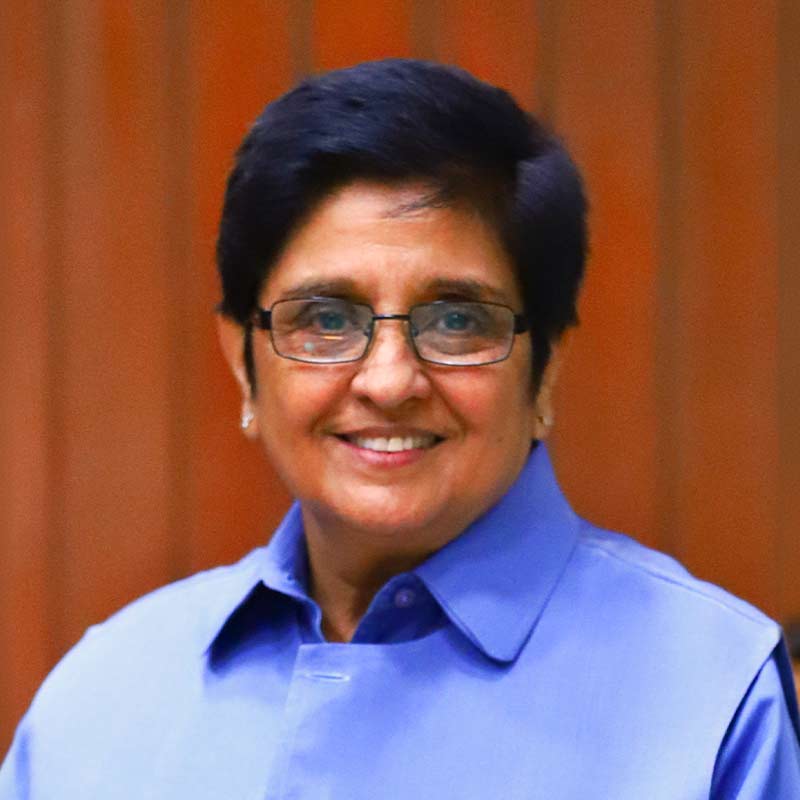
Social activist
Kiran Bedi is an Indian social activist who was the first woman to join the Indian Police Service (IPS) and who was instrumental in introducing prison reform in India. Bedi earned recognition for the work she did as inspector general of prisons, beginning in 1994. In that capacity she reshaped one of the largest prisons in the world, the Tihar prison complex in Delhi, by addressing the corruption and human rights abuses she found there. She targeted sanitation and nutrition problems at Tihar and also implemented new literacy and drug treatment programs.

February 2, 2026 • by David Bach, Huda Al Hashimi in Geopolitics
Countries building ecosystems where government vision, business innovation, and investor confidence reinforce each other to gain competitive advantage through strategic optimism. ...
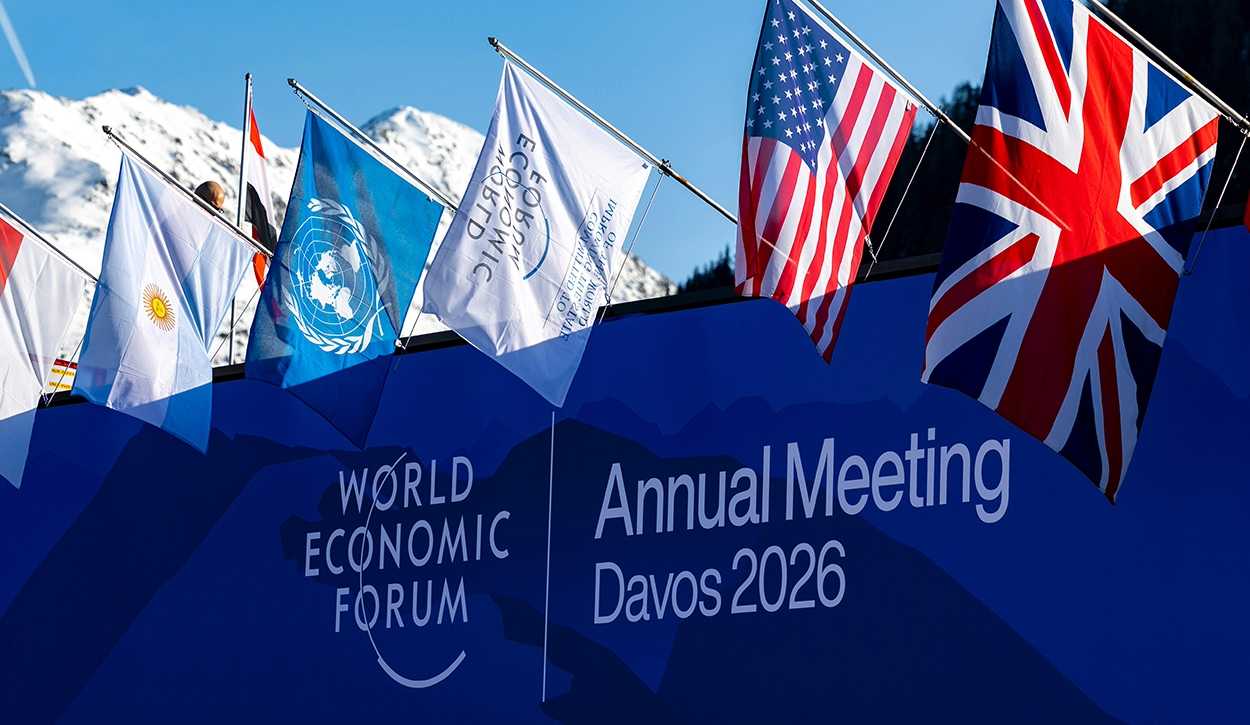
January 23, 2026 • by David Bach, Julia Binder in Geopolitics
Live from Davos: IMD’s Julia Binder and David Bach cut through the headlines on geopolitics, AI, energy – and competing visions for the international order....

January 23, 2026 • by David Bach, Julia Binder, Arturo Bris, Frédéric Dalsace, Simon J. Evenett, Florian Hoos , Jennifer Jordan, Sara Ratti, Karl Schmedders, Sarah E. Toms, Ginka Toegel in Geopolitics
From Trump and transatlantic tensions to AI’s reality check and sustainability’s reinvention, Davos 2026 signals a shift toward values-based pragmatism....
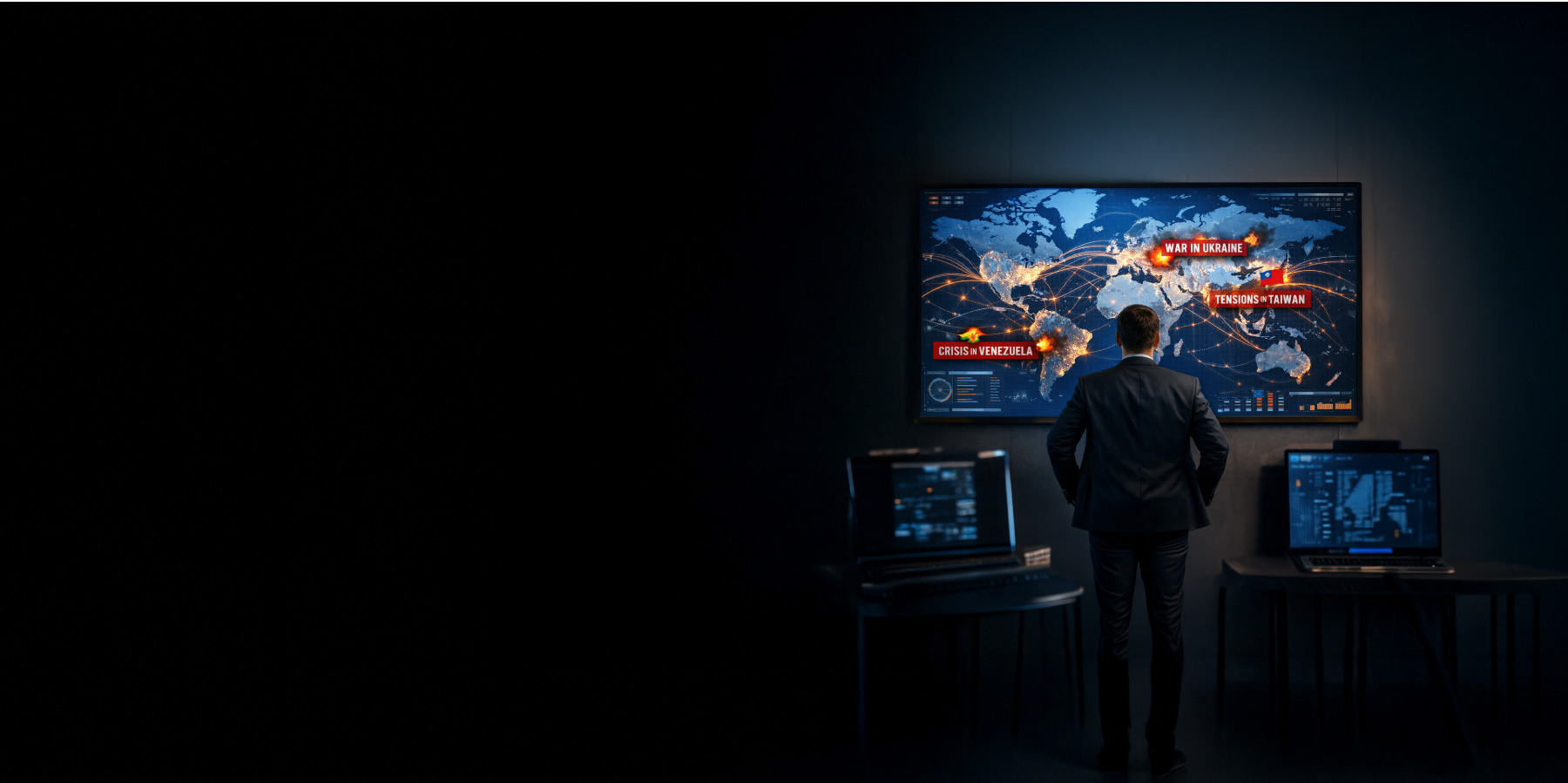
January 12, 2026 • by Simon J. Evenett in Geopolitics
In turbulent times, companies can justify their investments in geopolitical assets by moving beyond risk mitigation and using foresight to gain competitive advantage and create value....
Explore first person business intelligence from top minds curated for a global executive audience